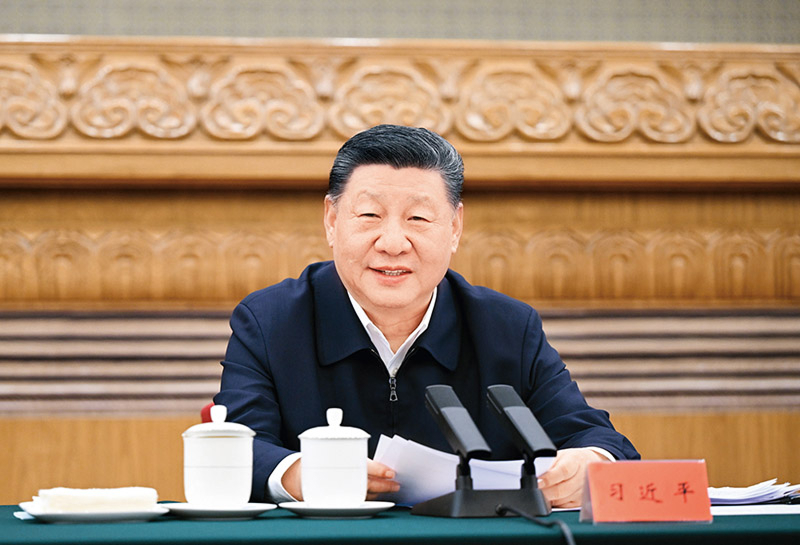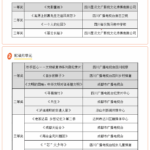Promoting the Healthy and High-Quality Development of the Private Economy
The purpose of convening this symposium is to listen to the voices of private entrepreneurs, engage in in-depth discussions, unify our thinking, strengthen confidence, and further address the prominent issues facing the development of the private economy. We aim to encourage and support private enterprises and entrepreneurs to boost their morale, overcome challenges, and promote the healthy and high-quality development of the private sector.
Private enterprises have flourished alongside the great journey of reform and opening-up, a fact that many have personally experienced. Since the beginning of reform and opening-up, I have held leadership positions from Hebei to Fujian, Zhejiang, Shanghai, and then to the central government. Throughout this journey, I have consistently emphasized the importance of supporting the healthy development of the private economy and the growth of private entrepreneurs.
Over the decades, our Party’s theory and practice regarding the role of the private economy in reform, opening-up, and socialist modernization have been consistent and evolving with the times. Since the 18th National Congress of the Communist Party of China, the Central Committee has issued multiple documents, and I have delivered numerous speeches and instructions. The fundamental policies of the Party and the state toward the development of the private economy can be summarized as follows: The Communist Party of China leads the people in developing a socialist market economy, where the non-public sector is an important component of China’s socialist market economy and is protected by the Constitution and laws. The Party and the state adhere to and improve the socialist basic economic system, unwaveringly consolidating and developing the public sector while encouraging, supporting, and guiding the development of the non-public sector. The Party and the state ensure that all types of ownership economies use production factors equally under the law, participate in market competition fairly, and receive equal legal protection, promoting complementary advantages and common development among all types of ownership economies, as well as the healthy growth of the non-public sector and its practitioners. These fundamental policies have been incorporated into the socialist system with Chinese characteristics and are clearly reflected in the Constitution and the Party Charter. We will persistently uphold and implement these policies without change. This is the fundamental premise of our discussion on promoting the development of the private economy.
Below, I will share three key points.
1. The Private Economy Has Broad Prospects and Great Potential in the New Era and New Journey
Since the Third Plenary Session of the 11th Central Committee, our Party’s reform and opening-up policies have created unprecedented historical opportunities for the rapid development of the private economy. Today, China’s private economy has reached a considerable scale and holds significant weight. Private enterprises account for over 92% of all enterprises, and more than 92% of the nationally recognized high-tech enterprises are private. Private enterprises contribute over 50% to imports, exports, and tax revenue, and more than 80% to urban employment. The overall strength, innovation capacity, and market competitiveness of the private economy have greatly improved, laying a solid foundation for its high-quality development.
In the new era and new journey, China’s social productivity will continue to rise, living standards will steadily improve, and reform and opening-up will deepen comprehensively. The rapid development of education, science, and technology, along with a large and high-quality talent pool and labor force, a well-developed industrial and infrastructure system, and the emergence of new industries, business models, and formats, presents vast opportunities for the private economy. The enormous potential of a super-sized market of over 1.4 billion people offers even greater space for development. Most importantly, the socialist system with Chinese characteristics has multiple significant advantages. The continuous improvement of the socialist market economy and the socialist legal system with Chinese characteristics will provide stronger safeguards for the development of the private economy. The current political, economic, and social environments are highly conducive to the growth of the private economy, making it an opportune time for private enterprises and entrepreneurs to excel.
However, we must also recognize that the private economy faces some difficulties and challenges. Notable issues include the impact of the new technological revolution and industrial transformation on traditional industries, the struggles of some technology-oriented and export-dependent private enterprises, poor market judgment and management in some private enterprises due to盲目diversification, suboptimal development environments in某些regions, and lingering misconceptions about the private economy in society.
How should we view and address these challenges? I believe these difficulties are part of the reform, development, and industrial transformation process—they are not systemic, not universal, not long-term, and can be overcome. Addressing them




